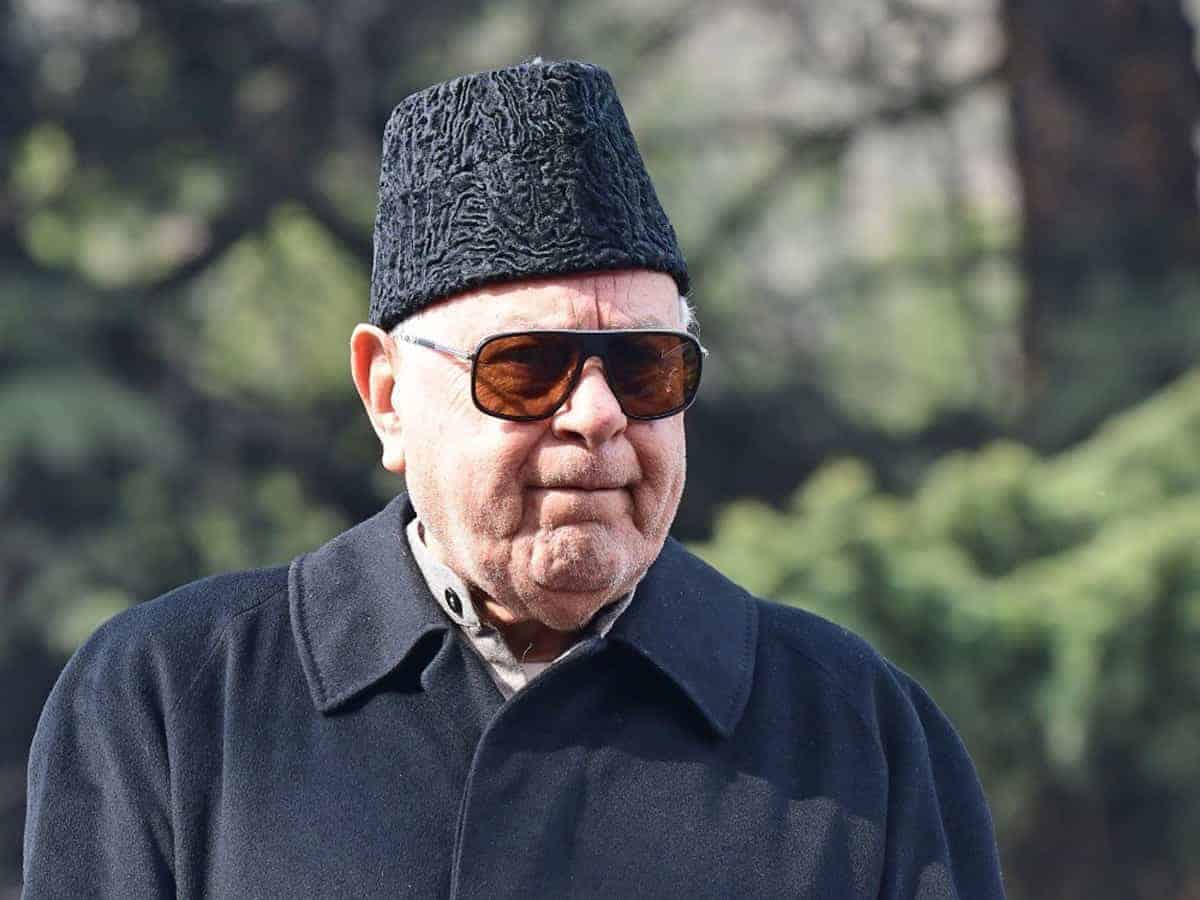Kalyani Shankar
It is indeed a significant political development in Jammu and Kashmir where prominent mainstream political parties have joined hands to demand the restoration of Article 370 and statehood. It was on August 5 last year that the Centre after beefing up army presence, detaining leaders of Kashmir’s major political parties revoked Articles 370 and 35A of the Constitution and bifurcated the state into two Union Territories. There are multiple petitions before the Supreme Court about its constitutionality.
This is the first time in the past one year that there is an indication of some political activity. Only in March the National Conference leader Dr Farooq Abdullah had been released as also many others but still Mehboobha Mufti and a few others are under detention. This has attracted international attention on human rights abuse.
In such situation, the Saturday statement by Dr Abdullah at the end of his first meeting with other national and regional parties including the Congress and the PDP is indeed politically significant. The joint statement said, “We are committed to strive for the restoration of Article 370 and 35 A, the constitution of J and K and the restoration of the state and any division of state is unacceptable to us. We unanimously reiterate that there can be nothing about us without us.” They also hinted at launching a joint struggle
Also for the first time the two rivals -PDP and the NC have come together on a single platform to resume political activities. Secondly, the very fact that the state administration allowed some political activities itself is seen as significant. Only a few days ago Dr Abdullah was not allowed to hold any meeting. But when the Centre informed the court that all these leaders are free, he cleverly called the meeting on Saturday making it a fait accompli. Abdullah claims that the Centre was trying to divide the opposition, which is why it has released some leaders and kept some others in detention. National Conference president Dr Farooq Abdullah, Congress State President Ghulam Ahmad Mir, CPI (M) General Secretary M Y Tarigami, Peoples Conference Chairman, Sajad Gani Lone and Vice President Awami National Conference Muzuffar Shah participated in the meeting. Mehbooba, who is still under house arrest has tweeted her support.
The question is will the Centre agree to withdraw the abrogation of Article 370, which is a part of the BJP’s core agenda? The state BJP chief promptly reacted “restoration of Article 370 and 35 A are next to impossible. And the parties planning to push them were doing nothing but day dreaming.”
Manoj Sinha’s appointment as the new Lieutenant-Governor, the second in the past one year, has been welcomed in political circles, as Kashmir needs a politician and not a bureaucrat now. There are many outside influences at work such as Pakistan, China and the militants.
Sinha is tasked with restoring normalcy, dealing with the political class and expedite developmental works. There is also the delimitation. The delimitation, which the BJP hopes will provide five or six more seats in Jammu, is likely to be completed only next October. It is to be seen which comes first–the completion of delimitation or the elections.
Secondly there is political vacuum in the state that needs to be filled.
The third is holding elections.
Manoj Sinha might take the credit for opening up the political activities in the state. Sinha knows that at some time or the other political activities must resume. The authorities claim that in the past one year the number of Kashmiri youth who have joined the militants has come down by almost 40 per cent.
The people in Kashmir are disillusioned with the policies of not only the mainstream leadership but also the separatists. Post August, among the parties only the BJP and the recently formed Apni Party are functioning. Led by PDP dissenter Altaf Bukhari and believed to be propped up by the deep state.
On the ground, nothing much has changed since last August.
The people are facing a double whammy as they suffer from militancy on the one hand and the consequences of the complete lockdown in the past five months on the other. Jobs are scarce and development work has been hit. The Kashmir Chamber of Commerce claims that the loss in the past one-year has been about Rs 40,000 crore in the valley alone while about 500,000 jobs have been lost.
For now, the authorities should release politicians still in detention and allow political activity to resume. New Delhi should also take steps to curb abuses by security forces. Although for now little suggests that the Centre will rethink its approach to Kashmir, the government should try to calm tensions. Restoring the region’s statehood, a prospect to which the Modi government has said it is open, would help.
Kalyani Shankar is a seasoned journalist who has worked, among other organisations, with Hindustan Times. She is based in New Delhi.

